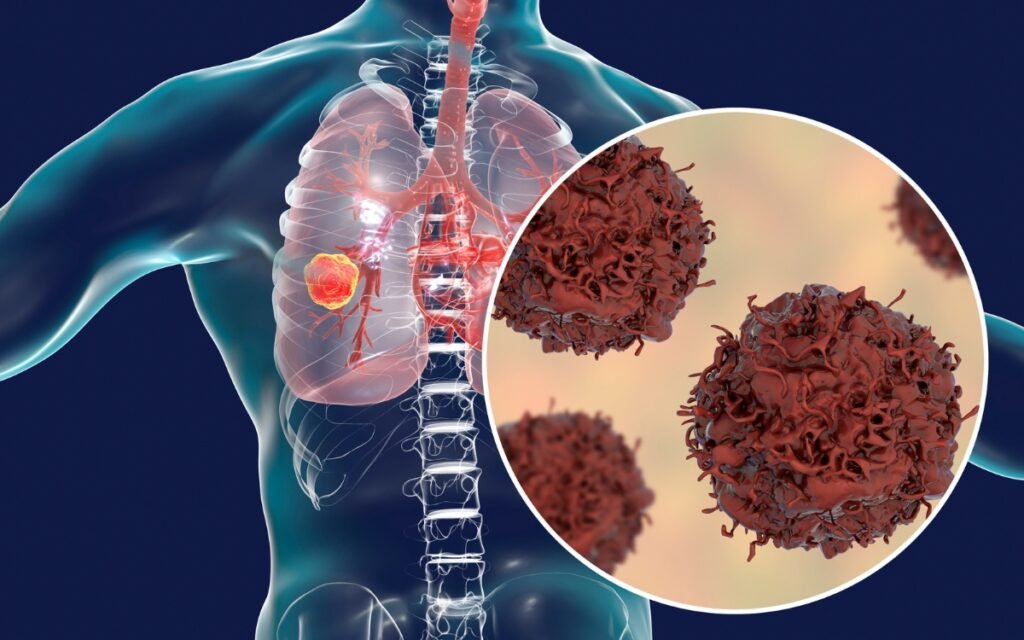ESMO 2023: LBA2
About 4-5% of NSCLC cases are identified with ALK rearrangements. In 2015, Alecensa (alectinib) received accelerated approval to address ALK-positive metastatic NSCLC in patients who either experienced disease progression or couldn’t tolerate Xalkori (crizotinib). The focus has now shifted to early-stage ALK-positive NSCLC, with Phase III trial results presented at ESMO 2023.
The ALINA study, a Phase III trial, assessed the efficacy and safety of adjuvant alectinib compared to platinum-based chemotherapy in individuals with completely resected Stage IB to IIIA ALK-positive NSCLC. A total of 257 patients were randomly assigned to receive either alectinib (n=130) or chemotherapy (n=127), and their baseline characteristics were well-balanced. As of the data cutoff in June 2023, the median follow-up was 27.8 months.
The study revealed a significant benefit in disease-free survival (DFS) with alectinib compared to chemotherapy, both in the stage II–IIIA and intention-to-treat (ITT) populations. There was also a meaningful improvement in central nervous system disease-free survival (CNS-DFS) in the ITT population. Overall survival (OS) data was not mature at the time. According to the analysis, after three years, about 88.7% of patients treated with Alecensa were alive without disease recurrence, in contrast to a 54% survival rate in the chemotherapy group. The two-year DFS rates with alectinib and chemotherapy were 93.8% versus 63.0% in the stage II–IIIA population and 93.6% versus 63.7% in the ITT population.
Grade 3–4 adverse events (AEs) were reported in 30% of patients on alectinib and 31% on chemotherapy, with no grade 5 AEs in either group. While 13% of alectinib-treated patients experienced serious AEs compared to 8% in the chemotherapy group, the rates of serious treatment-related AEs and AEs leading to treatment discontinuation were lower with alectinib (2% and 5%, respectively) compared to chemotherapy (7% and 13%, respectively).
Conclusion
The recent results from the ALINA trial for ALECENSA draw parallels with AstraZeneca’s ADAURA trial for TAGRISSO in 2020. Both trials targeted post-surgery patients with specific genetic mutations in non-small cell lung cancer (NSCLC), providing adjuvant treatment options. At that time, TAGRISSO, a prominent EGFR inhibitor, demonstrated a remarkable 83% reduction in the risk of disease recurrence or death compared to a placebo in the adjuvant setting.
However, TAGRISSO’s accelerated approval as an adjuvant therapy raised some concerns among medical professionals. There were doubts regarding the clear evidence supporting the extension of patients’ lives through early-stage use of TAGRISSO, especially considering its already robust performance as the standard of care for advanced disease.
The newly disclosed results from the ALINA study present a groundbreaking development. Alectinib emerges as the first ALK inhibitor to significantly improve Disease-Free Survival (DFS) compared to chemotherapy in patients with resected ALK-positive NSCLC. This finding represents a pivotal moment, offering an effective new treatment strategy for this patient population. It marks a significant advancement in the field, potentially introducing a fresh therapeutic approach for these individuals.





























